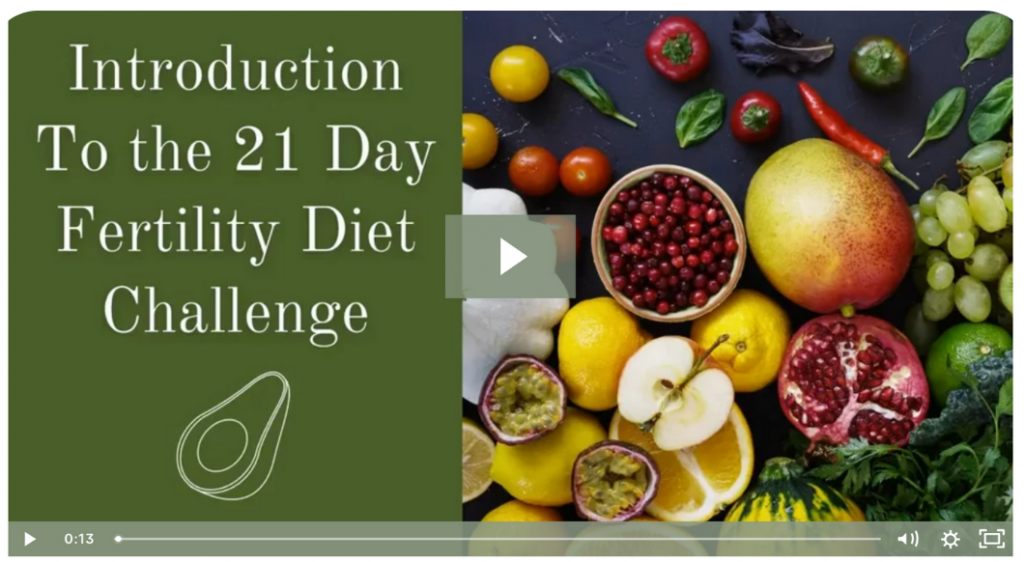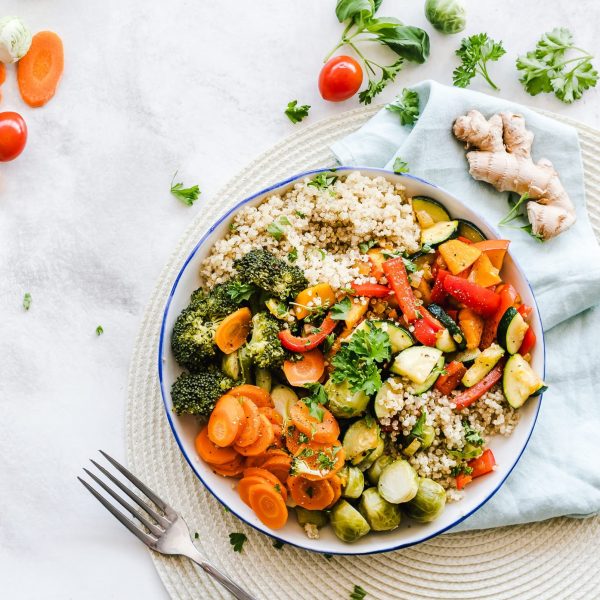“A human being is made up of roughly 63% water, 22% protein, 13% fat, 2% minerals & vitamins. Every single molecule comes from the food you eat and water you drink…” – Patrick Holford… Founder of the Institute for Optimum Nutrition
Diet plays such an important role in health that it has always been my first question and answer when clients ask me how to heal this or help with that. When it comes to fertility and pregnancy, it is of the utmost importance to eat a healthy whole food diet. Everything you eat and drink has an impact on your health and the health of your baby. Pre-conception nutrition is important not only to make sure you are prepared for a healthy pregnancy, but to also avoid many fertility issues. Here are some of my top tips on eating a healthy fertility diet…
1. Eat as many raw fruits and vegetables a day as you can – at least 5 servings of veggies and 3-4 servings of fruit. General serving size is one small peach or 1/2C of veggies. Here are some ideas to get enough fruits and veggies into your diet daily:
- Eat fruits as snacks in between meals
- Eat a large salad as one of your meals
- Make sure 50% of your plate is veggies
- Eat a dark leafy green with dinner
- Drink fertility smoothies
- Drink fresh vegetable juices daily
2. If you eat animal protein, focus more on cold-water fish instead of beef or chicken. Fish are abundant in omega 3 fatty acids which are essential in a fertility and pregnancy diet. If you are vegetarian, in addition to eating beans and lentils daily, add some nuts from tip #3 to get Omega 3 daily.
3. Eat 1 heaping teaspoon of ground seed or 1T of seed oil (such as hemp or flax) a day. This will assure that you are eating some essential fatty acids every day. Seeds high in Omega 3 are: flax, hemp, pumpkin, walnut. Seeds high in Omega 6 are: sunflower and sesame.
Watch The Introduction to the 21 Day Fertility Diet Challenge
- Learn how to transition to a natural fertility diet by focusing on the important 5
- Get all the details on how to use nutrition as a tool for hormonal health, cell protection and fertility wellness
- An effective tool to help your tastebuds transition towards healthier foods
- Learn which foods are most important for fertility and how to regularly eat them

4. Eat 3-4 serving of WHOLE grains a day. Quinoa, millet, oats and rice are some of my favorites. Amongst many things, whole grains supply B vitamins and fiber which are both essential for a healthy fertility and pregnancy diet. Try to mix it up and eat a wide variety of whole grains and avoid processed grains.
5. Drink 8 glasses of clean water a day (reverse osmosis or spring water being the best). Avoid bottled water as the plastics leach estrogen-mimicking chemicals into the water). One tip is to start the day with a quart of water with lemon in it and drink as much as you can upon rising and finish the rest in the next half an hour. That will take care of half of your water for the day and help the body to gently cleanse itself in the morning.
6. Avoid food that is burnt, fried, browned, has hydrogenated oils, saturated animal fats and microwaved foods. These types of cooking and ingredients can cause the body to create free radicals which can negatively affect cell DNA. The key to healthy ova (egg) and sperm is intact DNA. If the DNA has been impaired by free radical damage, this is one cause of miscarriages, blight ovum and inability to get pregnant.
7. Avoid sugar and sweeteners in all forms – white sugar, high fructose corn syrup, etc. Sugar negatively effects the blood sugar levels which can affect hormonal balance and ovulation. A great alternative is stevia.
8. Avoid alcohol on a daily basis and keep the coffee down to one cup or even better quit all together. I like Cafix, it is a great coffee-alternative that satiates the coffee taste buds.
9. Take a whole food multivitamin DAILY. When trying to conceive or in preparation it is best to use a whole food prenatal multivitamin that contains folic acid, iron, zinc, b12, and vitamin C… nutrients that are necessary for a healthy pregnancy before you are even pregnant.
10. Drink a fresh juice or make a smoothie daily. Juices and smoothies are a great way to get a huge amount of nutrients in an easy to assimilate form.
If you would like to learn more about eating a natural fertility diet check out these resources:
The Natural Fertility Diet
21 Day Fertility Diet Challenge
Fertility Smoothies for Optimal Health





